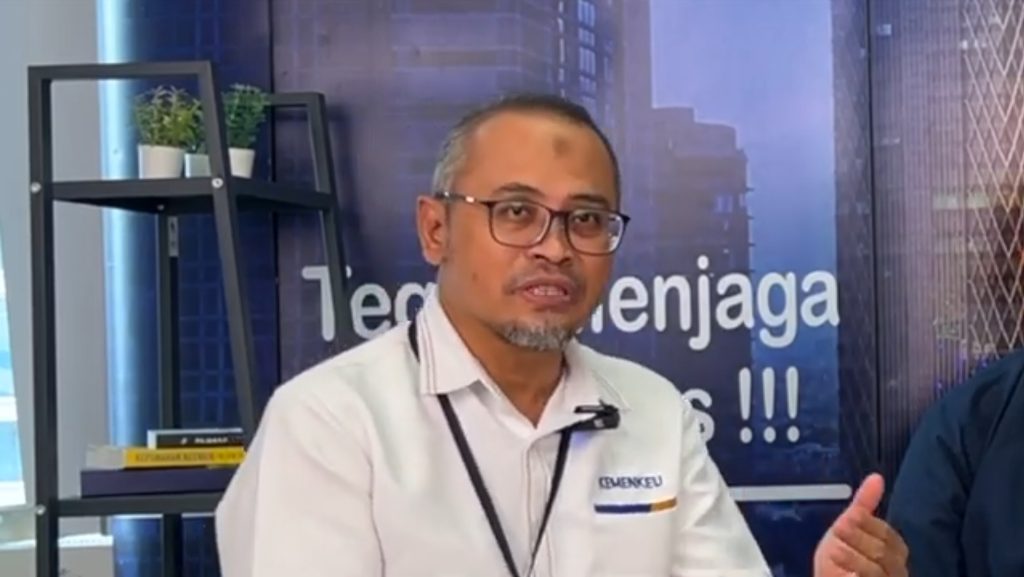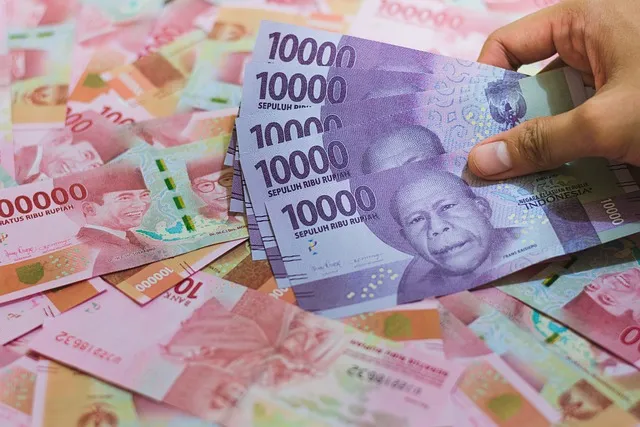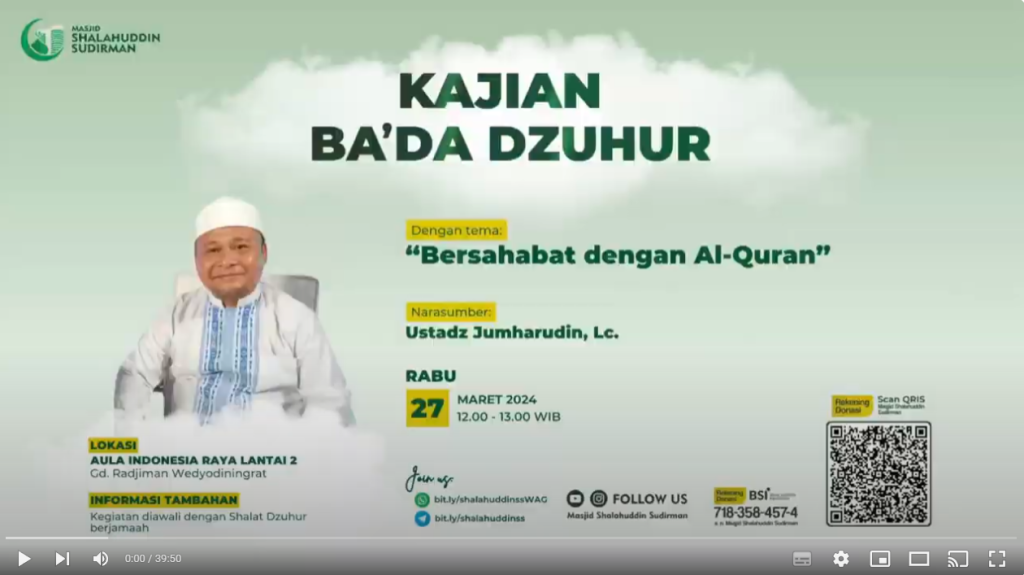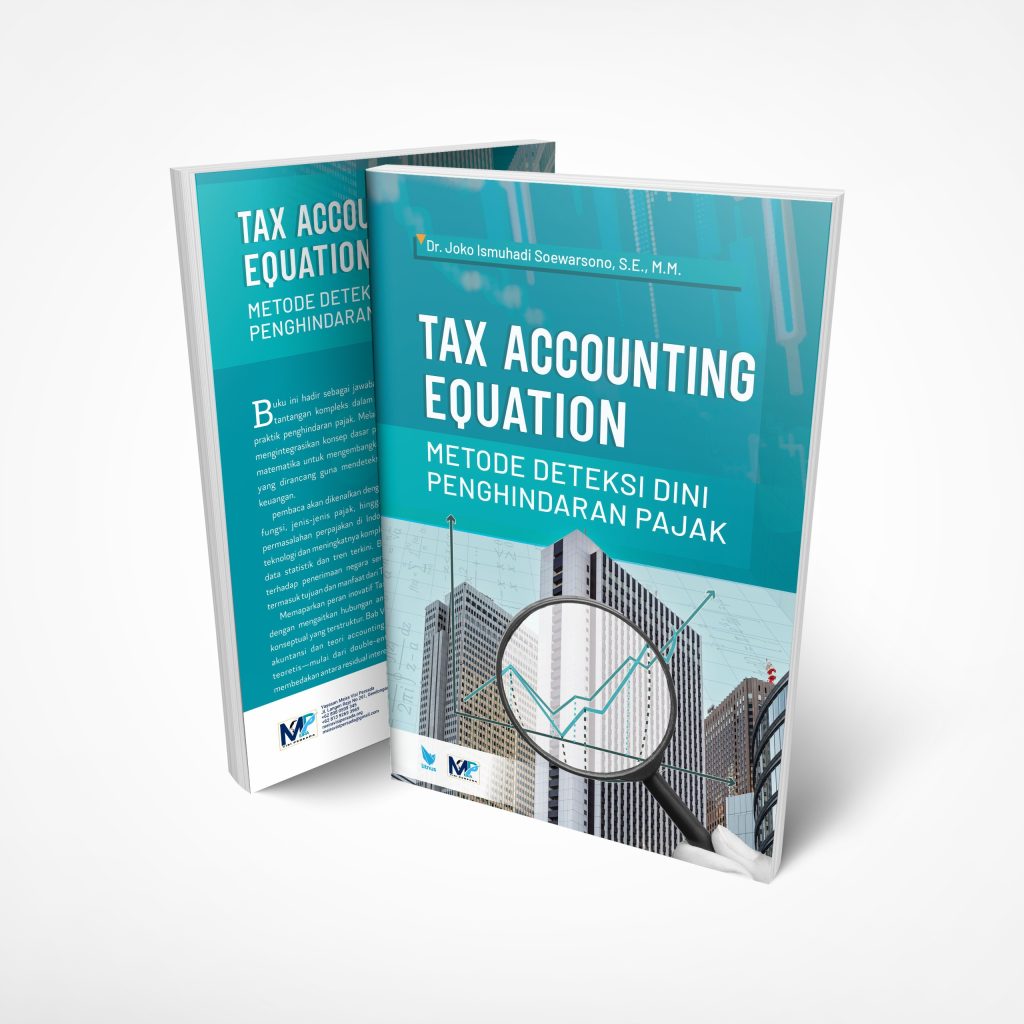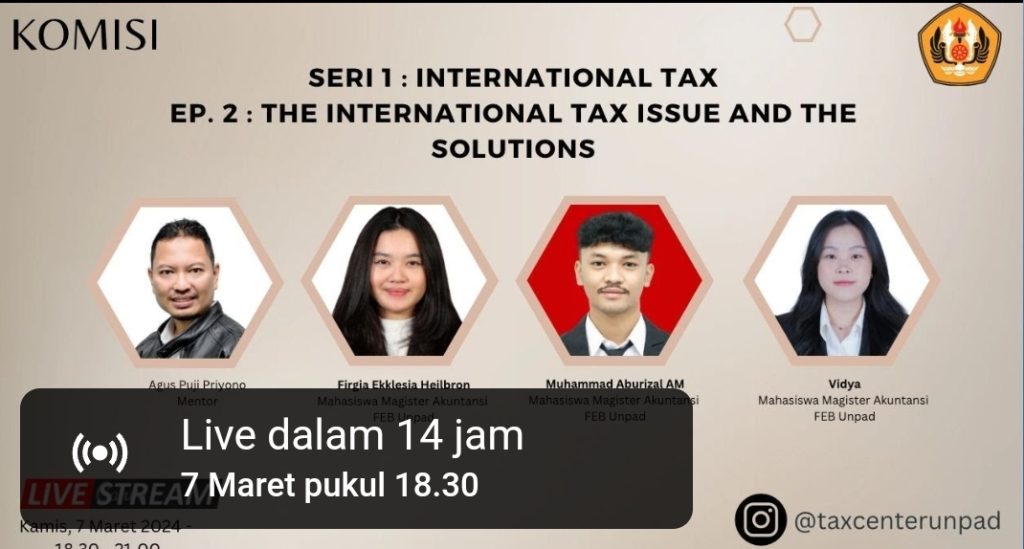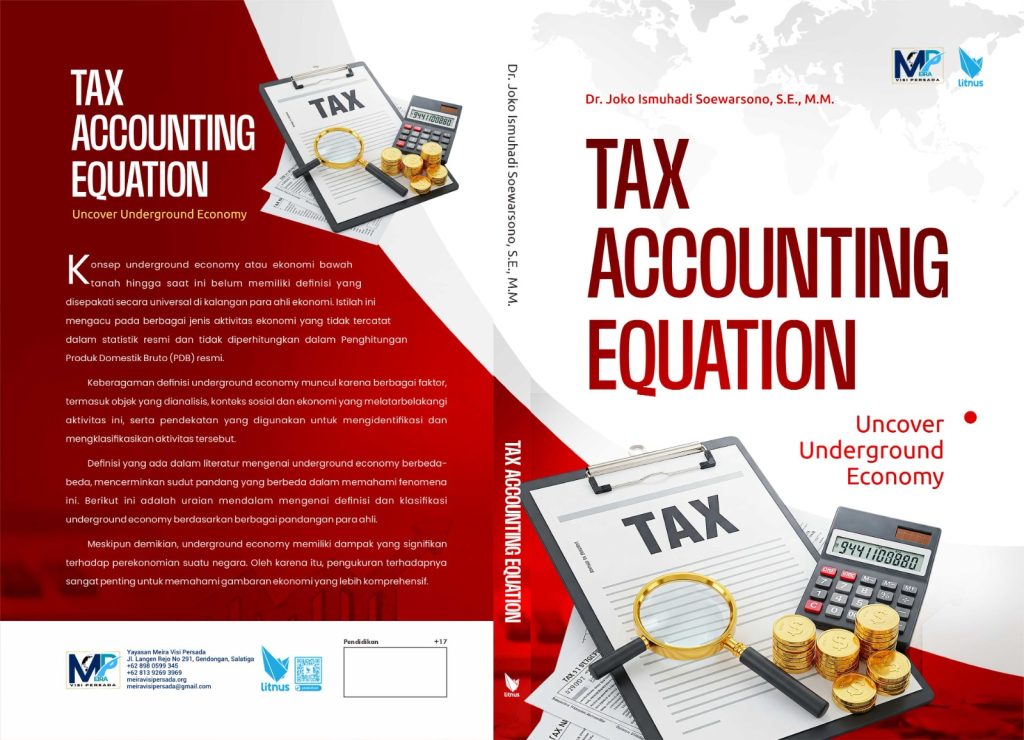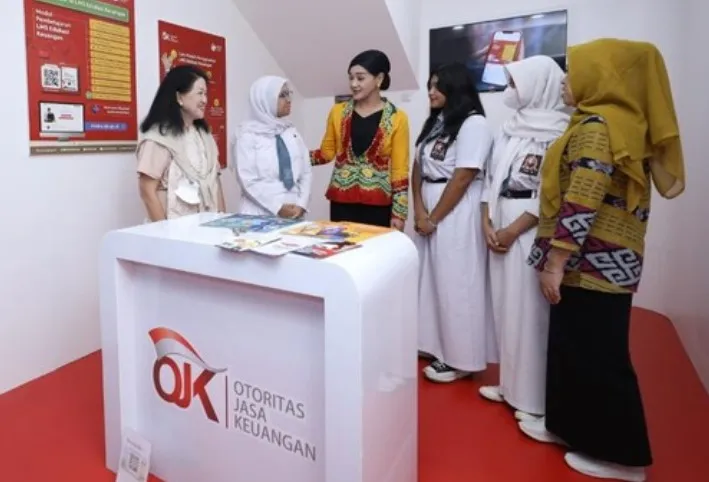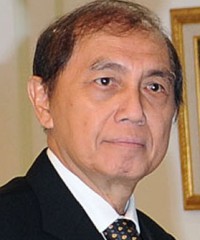
Navigating the Legal and Fiscal Undercurrents of Indonesia’s Informal Cigarette Retail Sector: A Dissertation Report
- Ekonomi
Friday, 28 March 2025 01:10 WIB

1. Introduction: Navigating the Legal and Fiscal Landscape of Indonesia’s Informal Cigarette Retail Sector
This dissertation, entitled “Handling Tax Manipulation by Corporations in Tax Crimes with Money Laundering,” seeks to explore the intricate relationship between formal legal frameworks and the realities of commercial practices within the Indonesian economic landscape. Specifically, this report delves into the complexities arising from the prevalence of informal retail networks in the cigarette industry, a sector of significant economic importance to Indonesia. The emergence of what the author terms “virtual entities,” such as those identifying as GGSP (Gudang Garam Strategic Partnership), DRP (Djarum Retail Partnership), and SRC (Sampoerna Retail Community), at the micro-retail level of cigarette sales, presents a compelling case study for examining the interplay between normative legal principles and actual market behavior. This phenomenon, observed by the author during preliminary research and presented at an open session for the promotion of a doctor of law at Borobudur University, warrants a thorough investigation into its legal and fiscal implications.
The central problem addressed in this dissertation is the potential for tax evasion and money laundering that may arise from the informal structure and cash-intensive nature of cigarette sales conducted by these “virtual entities.” Operating as a bridge between major distributors and end consumers, these entities often lack formal legal standing and operate in a transactional environment where proof of purchase is typically absent. This absence of formal documentation and the reliance on cash transactions create opportunities for both underreporting of sales and the potential obfuscation of illicit funds. Consequently, this report aims to analyze the legal responsibilities, tax obligations, and financial practices associated with these informal networks, particularly in light of existing Indonesian legislation such as Law Number 8 of 2010 concerning Prevention and Eradication of Money Laundering Crimes (UU TPPU) and Law Number 6 of 1983 concerning General Provisions and Tax Procedures (UU KUP) as most recently amended by Law Number 7 of 2021 concerning Harmonization of Tax Regulations (UU HPP). Furthermore, the applicability of the Business Purpose Test in evaluating the legitimacy of financial transactions within this sector will be examined. This research holds both academic and practical significance, contributing to a deeper understanding of financial crime and tax compliance challenges within Indonesia’s dynamic economic environment and potentially informing future regulatory strategies. This report will proceed by establishing a conceptual framework based on the principles of “das sollen” and “das sein,” followed by an analysis of the relevant Indonesian legal mandates, an examination of the legal status and operational dynamics of “virtual entities,” a scrutiny of tax avoidance and money laundering possibilities, a discussion of excise regulations, an analysis of back-to-back loan schemes, and finally, a consideration of regulatory challenges and recommendations for enhanced oversight.
2. Conceptual Framework: “Das Sollen” and “Das Sein” in Indonesian Law
To effectively analyze the legal and fiscal phenomena occurring within Indonesia’s informal cigarette retail sector, it is crucial to establish a conceptual framework rooted in the jurisprudential concepts of “das sollen” and “das sein”. Originating from German legal philosophy, “das sollen” translates to “what ought to be” and represents the ideal state of law, encompassing the body of legal rules, norms, and regulations that are formally enacted and intended to govern conduct. It embodies the normative framework, outlining how individuals and entities should behave under the law, such as the requirement for businesses to report all income for taxation purposes as stipulated in the UU KUP. In contrast, “das sein,” meaning “what is,” refers to the law as it is actually practiced and experienced in society – the factual reality of legal implementation and societal behavior. It represents the concrete events and circumstances that occur, which may or may not align with the prescriptions of “das sollen” . For instance, while the ideal law (“das sollen”) mandates that all cigarette retailers should be registered and issue proof of purchase for every transaction, the emergence of unregistered “virtual entities” operating without these formalities exemplifies “das sein.”
These concepts hold significant relevance within Indonesian jurisprudence, providing a lens through which to understand the potential discrepancies between the intended legal order and the observed realities . A notable gap often exists between the ideal law and its practical application in Indonesia . This divergence can lead to a decline in public trust in the legal system when the law in action (“das sein”) deviates from the law in the books (“das sollen”) . The Indonesian legal system, influenced by its colonial past and ongoing efforts at integration, sometimes presents confusion between theoretical principles and practical application . Empirical legal science, which studies “das sein” – the reality of legal practices – can serve as a crucial foundation for shaping normative law (“das sollen”) to better regulate societal conduct . The application of these concepts extends across various legal domains, highlighting the continuous interplay between legal ideals and societal realities .
In the specific context of the informal cigarette retail sector in Indonesia, a substantial divergence appears to exist between “das sollen” and “das sein.” The formal legal framework, as embodied in tax and financial regulations, dictates that all businesses should be registered, maintain accurate sales records, and comply with tax obligations . However, the emergence and prevalence of unregistered “virtual entities” operating at the micro-retail level, often engaging in cash transactions without issuing formal receipts, represent a clear manifestation of “das sein” that deviates from these normative expectations. This situation suggests a potential systemic challenge in the ability of “das sollen” to effectively govern this particular segment of the market. It raises questions about the adequacy of current regulations, the effectiveness of law enforcement, and the potential for deliberate avoidance of legal and fiscal obligations by market actors within this informal ecosystem.
| Concept | Definition | Example in Indonesian Law | Example in Informal Cigarette Retail |
| Das Sollen | The ideal law; legal rules, norms, and regulations; what ought to be done. | Requirement for businesses to register with the Directorate General of Taxes and obtain an NPWP (UU KUP). | Requirement for all cigarette retailers to be registered as business entities, maintain sales records, and issue proof of purchase for every transaction, regardless of the amount. |
| Das Sein | The law as practiced; factual reality; what actually occurs. | Many judges still adhere to legal positivism, prioritizing legal certainty . | The emergence of unregistered “virtual entities” like GGSP, DRP, and SRC operating at the retail level without formal registration or issuing receipts for individual cigarette purchases. |
3. The Legal Mandate: Analyzing the Prevention and Eradication of Money Laundering (UU TPPU)
Indonesia has established a comprehensive legal framework to combat money laundering, with Law Number 8 of 2010 concerning the Prevention and Eradication of Money Laundering Crimes (UU TPPU) serving as the principal legislation in this regard . The enactment of this law underscores Indonesia’s commitment to protecting the stability of its economy and the integrity of its financial system, recognizing that money laundering not only poses a threat to these fundamental aspects but can also endanger the core values of society . The UU TPPU aims to provide a robust legal foundation for ensuring legal certainty, enhancing the effectiveness of law enforcement efforts, and facilitating the tracing and recovery of assets derived from criminal activities . To achieve these objectives, the law mandates that financial institutions implement stringent measures such as customer due diligence, maintain detailed records of transactions, and report any financial activities deemed suspicious . Furthermore, it outlines the legal procedures for the confiscation of proceeds that are linked to money laundering offenses .
At its core, the UU TPPU defines money laundering as any action that fulfills the elements of a criminal offense as stipulated within the law. This definition encompasses a broad range of activities intended to conceal or disguise the illicit origins of wealth generated from criminal acts. The process of money laundering is typically understood to occur in three distinct stages: placement, layering, and integration , B_5]. Placement involves the initial introduction of illicit funds into the financial system, often in the form of cash. Layering entails a series of complex financial transactions designed to separate the funds from their illegal source, making it difficult to trace their origins. Integration is the final stage where the laundered funds are reintroduced into the legitimate economy, often through investments or purchases of assets, thereby making them appear to be derived from lawful sources.
A critical aspect of understanding money laundering is the concept of predicate offenses. These are the underlying criminal activities that generate the “dirty money” which is subsequently laundered . The UU TPPU recognizes a wide array of predicate offenses, and importantly, criminal acts in the field of taxation, such as tax evasion and fraud, can serve as predicate offenses for money laundering . This connection is particularly relevant to the dissertation’s focus on tax manipulation and its potential link to money laundering within the informal cigarette retail sector. If corporations or individuals engage in tax crimes, the proceeds from these activities are considered illicit and any subsequent actions taken to conceal or disguise these funds would fall under the purview of the UU TPPU.
The UU TPPU places significant legal responsibilities on various entities involved in financial transactions to prevent and detect money laundering. This includes an obligation for service providers, which can be broadly interpreted, to report any financial transactions undertaken by customers that are deemed suspicious or exceed a certain threshold . The law also provides a comprehensive definition of a “corporation,” which extends beyond formally registered legal entities to include any collection of organized people and/or wealth, regardless of whether they possess legal entity status . This broad definition is crucial when considering the “virtual entities” operating in the informal cigarette retail market. While these entities may not be registered as formal legal entities, their organized nature and involvement in financial transactions related to cigarette sales could potentially bring them, or at least the individuals controlling their financial flows, under the ambit of the UU TPPU’s definition of a corporation. This implies that even without formal legal status, if these entities are facilitating transactions involving proceeds of crime, they might be subject to scrutiny and potential legal responsibilities under the law.
The cash-intensive nature of the informal cigarette retail sector, as highlighted in the user’s query, makes it particularly susceptible to money laundering, especially during the initial placement stage . The large volumes of cash generated from numerous small, undocumented retail sales provide an opportunity to introduce illicit funds into the financial system without immediate detection. The user’s narrative also alludes to the significant amounts of “dirty money” accumulating with distributors, further underscoring this vulnerability. A key challenge in this context is the lack of formal transaction records at the retail level, as cigarette buyers typically do not receive receipts or invoices for small purchases . This absence of an audit trail hinders the ability of authorities to trace the origin of funds, a fundamental aspect of anti-money laundering efforts. The opacity created by these undocumented cash transactions can be exploited to place illicit funds into the financial system, making it difficult to distinguish between legitimate sales revenue and money derived from predicate offenses, such as tax evasion.
The Financial Transaction Reports and Analysis Center (PPATK) plays a pivotal role in Indonesia’s efforts to prevent and eradicate money laundering . As the country’s financial intelligence unit, PPATK is an independent institution tasked with receiving, analyzing, and disseminating information related to suspicious financial transactions. It has the authority to request and receive information from reporting parties, establish guidelines for anti-money laundering compliance, coordinate with relevant law enforcement agencies, and conduct analyses of financial transactions to detect potential money laundering activities. The information and analysis provided by PPATK are crucial for initiating investigations and prosecutions of money laundering offenses, thereby safeguarding the integrity of Indonesia’s financial system.
4. Fiscal Obligations and Compliance: Examining Tax Regulations (UU KUP and UU HPP)
The framework for fiscal obligations and tax compliance in Indonesia is primarily governed by Law Number 6 of 1983 concerning General Provisions and Tax Procedures (UU KUP) and its subsequent amendments, most recently through Law Number 7 of 2021 concerning Harmonization of Tax Regulations (UU HPP) . These laws establish the fundamental principles and procedures for taxation in Indonesia, encompassing aspects such as taxpayer registration, tax return filing, tax payment, and the imposition of penalties for non-compliance . The UU HPP, in particular, aimed to enhance tax compliance, promote fiscal justice, and align Indonesia’s tax framework with international standards .
Within the cigarette supply chain, both main distributors and retailers are subject to specific tax obligations. A fundamental requirement is that every individual or entity meeting the criteria of a Taxpayer must register with the Directorate General of Taxes and obtain a Taxpayer Identification Number (NPWP) . This registration is a prerequisite for fulfilling other tax obligations, such as reporting sales and paying Value Added Tax (VAT). Businesses with an annual turnover exceeding a certain threshold, currently IDR 4.8 billion , are obligated to register as VAT-Registered Persons (Pengusaha Kena Pajak – PKP), collect VAT on their taxable supplies, and remit it to the state treasury . The standard VAT rate has seen recent changes under the UU HPP, increasing to 11% in April 2022 and with a further planned increase to 12% by 2025 . Additionally, businesses are subject to corporate income tax (CIT) on their profits, with the general rate standing at 22% . Small enterprises with an annual turnover not exceeding IDR 50 billion may be eligible for a 50% reduction in the CIT rate applied proportionally to the taxable income derived from a turnover of up to IDR 4.8 billion .
Regulations concerning sales reporting and documentation are crucial for ensuring tax compliance. VAT-Registered Persons are generally required to issue tax invoices (Faktur Pajak) for their taxable transactions, often utilizing the electronic invoicing system known as e-Faktur . These invoices serve as formal proof of purchase and are essential for both the seller to account for output VAT and the buyer to claim input VAT credits. However, as the user points out, retail cigarette purchases, particularly from the “virtual entities” operating at the roadside stall level, often occur without the issuance of such formal documentation. This lack of proof of purchase at the end-user level implies that these “virtual entities” are likely not registered as PKP individually, given that their scale of operations might fall below the VAT threshold.
The absence of formal sales records at the retail level, while seemingly inconsequential for individual small transactions, creates a significant challenge for tax authorities. It introduces a considerable loophole for the underreporting of income, not only by the “virtual entities” themselves, whose aggregate sales across numerous outlets could be substantial, but also potentially by the main distributors. Distributors might be tempted not to fully report their actual cash sales to these informal channels, as there is no direct transactional record linking the distributor’s supply to the ultimate consumer through these “virtual entities.” This lack of transparency in the sales chain makes it difficult for tax authorities to accurately determine the true turnover and tax liability at both the retail and distribution levels.
Non-compliance with tax regulations, including tax evasion, carries significant penalties under the UU KUP and UU HPP . These penalties can range from administrative sanctions such as fines and interest charges on underpaid taxes to more severe criminal sanctions, including potential imprisonment for deliberate acts of tax evasion . The UU HPP has also introduced changes to the administrative sanctions for certain tax-related wrongdoings, indicating a continued effort to deter non-compliance .
The tax obligations of informal traders in Indonesia present a complex issue. Generally, informal units operating outside the formal regulatory framework are not subject to official taxation . Many choose to remain unregistered to avoid the perceived burdens of taxation and regulation . Indonesia’s large informal sector, which constitutes a significant portion of its economy, poses a considerable challenge for tax collection efforts, contributing to the country’s relatively low tax ratio . While there are revenue thresholds below which businesses may be exempt from certain taxes like VAT and final income tax , entities earning above these thresholds but operating informally and not paying taxes are considered non-compliant . The “virtual entities” in the cigarette retail sector, often operating as unregistered micro-businesses, likely fall below the individual VAT registration threshold. Their informal nature makes it difficult for tax authorities to effectively track their income and enforce tax obligations, potentially leading to a loss of state revenue .
5. The Reality of “Virtual Entities”: Legal Status and Operational Dynamics in the Cigarette Market
Understanding the legal status of “virtual entities” within the Indonesian legal framework requires an examination of the recognized forms of business organizations and the characteristics of informal business structures . Indonesian commercial law recognizes several principal categories of business organizations, including sole proprietorships (Usaha Perorangan), various forms of partnerships such as firma (FA) and commanditaire venootschap (CV), and limited liability companies (Perseroan Terbatas or PT) . Sole proprietorships are often utilized in the informal sector due to their simplicity and lack of stringent registration requirements . However, for formal business operations and to comply with tax regulations, registration is typically necessary. Establishing a formal entity like a PT involves a more complex process, requiring a deed of establishment executed before a notary, approval from the Ministry of Law and Human Rights, and registration with the relevant authorities . Despite the availability of these formal structures, Indonesia’s informal economy remains substantial, accounting for a significant portion of the nation’s GDP and employing a large segment of the workforce . This prevalence of informality suggests that a considerable amount of economic activity occurs outside the formal legal and regulatory purview.
The “virtual entities” described in the user’s query, such as GGSP, DRP, and SRC, appear to function as informal business associations rather than formally registered entities. These names suggest affiliations with major cigarette manufacturers through partnership or community programs, but they do not necessarily indicate legal incorporation as separate business entities . Indonesian law recognizes both legal entity associations (like foundations and incorporated associations requiring registration) and non-legal entity associations (informal groups formed based on shared interests without formal legal standing) . Given the user’s description, these “virtual entities” most likely fall into the category of non-legal entity associations. Their lack of formal registration as sole proprietorships, partnerships, or PTs implies that they do not possess a separate legal identity capable of entering into contracts or owning assets in their own name. This informal structure has significant implications for their legal accountability and tax obligations as a collective.
The legal responsibility of unregistered businesses in Indonesia is generally limited to the individuals operating those businesses . In the case of an unlicensed sole proprietorship, the owner bears unlimited personal liability for any business debts or losses incurred . While PTs offer limited liability to their shareholders, these “virtual entities” do not appear to have this structure . Limited partnerships (CV) also lack separate legal personality, with owners being liable with their private assets . As the user correctly points out, the “virtual entities” themselves, lacking legal entity status, cannot be held legally responsible as entities for the act of selling cigarettes. They do not have the legal standing to be sued or directly taxed as a corporation. However, the individuals who constitute these “virtual entities” and are directly engaged in selling cigarettes are still subject to individual tax obligations on the income they derive from these sales . The challenge lies in identifying and enforcing these individual tax obligations across a potentially large and dispersed network of informal vendors.
Financial regulations in Indonesia are primarily geared towards formal financial institutions and registered business entities . While laws like the UU TPPU might indirectly apply if suspicious financial transactions are detected involving these informal groups, there is a noticeable lack of specific and comprehensive financial regulations tailored to the routine operations of informal business communities like the “virtual entities” in the cigarette retail sector, which predominantly operate on a cash basis at the micro-retail level. This absence of targeted regulations and oversight mechanisms creates a regulatory gap that can potentially be exploited for illicit financial activities, including tax evasion and, as discussed earlier, potentially money laundering. The focus of the regulatory framework on formal entities leaves these informal networks operating with significantly less scrutiny, making it more challenging for authorities to monitor their financial activities and ensure compliance with relevant laws.
6. Tax Avoidance and Evasion: Scrutinizing Financial Transactions Through the Business Purpose Test
The “Business Purpose Test” serves as a crucial tool in Indonesian tax law for evaluating the legitimacy of financial transactions, ensuring they are driven by genuine business objectives rather than solely aimed at reducing tax liabilities . While often applied in the context of significant corporate actions such as mergers, acquisitions, and asset transfers , the underlying principle of the test – that transactions should have a bona fide business purpose beyond tax benefits – can be relevant in scrutinizing various financial arrangements. For instance, tax-neutral transfers of assets are often contingent upon meeting the criteria of a legitimate business purpose . Arrangements that are deemed to be primarily tax-driven are generally prohibited under this test .
Applying this test to the financial transactions between the main cigarette distributors and the “virtual entities,” particularly the debt transaction scheme described by the user, raises pertinent questions about the true nature and intent behind these arrangements. The user suggests that the creation of debt transactions funded by cash from retail cigarette sales, with the purpose of reclassifying sales revenue, might not withstand scrutiny under the Business Purpose Test. While the fundamental activity of selling cigarettes to end consumers undoubtedly serves a business purpose – generating revenue – the specific structure of channeling the resulting cash through a debt transaction scheme, as opposed to directly recognizing it as sales revenue, warrants closer examination. If the primary motivation behind this scheme is to avoid or reduce tax obligations rather than fulfilling a genuine business need for borrowing or lending, it is likely to fail the Business Purpose Test.
The user further elaborates on how this debt transaction scheme functions to reclassify sales revenue, which is a taxable object subject to both VAT and income tax, as debt disbursement, which is not typically a taxable event. By increasing reported liabilities, the Tax Accounting Equation (Revenues = Expenses + Assets – Liabilities) indicates a corresponding decrease in reported revenues. If the tax authorities determine that this reclassification lacks a substantive business purpose and is solely intended to misrepresent the nature of the funds received from cigarette sales, it could be deemed a form of tax evasion. The “virtual entities” at the retail level act as intermediaries in this flow of funds, and the main distributors, by utilizing this scheme, potentially benefit from a reduced tax burden on their actual sales turnover.
The Directorate General of Taxes (DJP) possesses the authority to thoroughly examine such financial arrangements and to potentially disregard or cancel them if they are found to be primarily aimed at tax avoidance or evasion . The DJP’s power to conduct audits and assess tax liabilities allows them to scrutinize the financial records and transaction flows of businesses to ensure compliance with tax regulations . If a debt transaction scheme is deemed to lack a legitimate business purpose and its main objective is to reduce tax payable, the DJP can invoke its authority to recharacterize the transactions according to their true economic substance.
In this context, the “substance over form” principle becomes particularly relevant . This principle allows tax authorities to look beyond the legal form of a transaction to its underlying economic reality. Even if the arrangement is documented as a “debt transaction,” if the actual flow of funds and the surrounding circumstances indicate that it is essentially a mechanism for handling and concealing revenue from cigarette sales, lacking the genuine characteristics of a loan (such as an independent lender, market-based interest rates, and realistic repayment terms), the DJP can disregard the “loan” label. They can then reclassify the cash received by the distributor as sales revenue and subject it to the appropriate taxes. The formalization of the “substance over form” principle in Indonesian tax legislation, as highlighted in Government Regulation Number 55 of 2022 , further empowers the tax authority to address tax avoidance practices that rely on the legal form of transactions rather than their true economic substance.
7. Excise Regulations and Potential Loopholes in the Cigarette Industry
The cigarette industry in Indonesia is subject to excise duties, and the regulations surrounding excise stamps (pita cukai) play a critical role in the collection of these duties and the tracking of cigarette production and distribution . Excise stamps are essentially revenue stamps that must be affixed to all legal cigarette packs, indicating that the required excise duty has been paid or will be accounted for . Cigarette manufacturers bear the responsibility for obtaining these stamps from the Directorate General of Customs and Excise (Direktorat Jenderal Bea dan Cukai) and ensuring they are properly affixed to their products before they are released into the market . They are also obligated to notify the authorities about the completion of excisable goods production, which includes details related to the excise stamps used . The Ministry of Finance Regulation (PMK) No. 109/PMK.010/2022 outlines procedures related to the tariffs and use of these excise stamps.
The user’s observation regarding the proliferation of small cigarette manufacturers (PRs) in Central and East Java, many of whom appear to have limited operational activity beyond registration with customs, raises serious concerns about potential abuse of the excise stamp system. The suspicion is that these small PRs are primarily established to gain the right to redeem excise stamps from the government . These stamps, once obtained, could then be illicitly sold to larger, market-leading cigarette companies who require a significant volume of stamps for their extensive production. This practice would constitute a major violation of excise regulations and could lead to substantial excise tax evasion if large companies are using stamps that were not specifically allocated to them based on their declared production volume. The entire system of excise duty collection relies on the accurate tracking and use of these stamps, and any circumvention undermines its effectiveness.
The user further points out a potential discrepancy in the marking of excise stamps. Stamps on products from large cigarette companies often lack specific names or codes that would clearly identify the small PR to whom they were originally issued, unlike the stamps found on products from MSMEs which might carry such identifiers. This lack of traceability on the excise stamps of major brands could be a deliberate tactic to obscure the origin of the stamps and potentially facilitate the use of illegally obtained stamps without easy detection by authorities. If the stamps used by large manufacturers cannot be readily traced back to their original allocation, it becomes significantly more challenging for the Directorate General of Customs and Excise to verify if the correct excise duty has been paid on the actual volume of cigarettes produced by these companies.
Violations related to excise stamps carry significant penalties under Indonesian law . Dealing in or possessing illegal cigarettes, which include those without valid excise stamps or with counterfeit stamps, can result in substantial fines and even criminal prosecution . The Directorate General of Customs and Excise actively conducts enforcement operations to combat the trade in illicit cigarettes, as evidenced by reports of seizures and the imposition of significant fines on those involved . The destruction of seized illegal cigarettes is also a common outcome of these enforcement actions . The potential for large-scale excise tax evasion through the misuse of excise stamps represents a serious threat to state revenue and necessitates robust regulatory oversight and enforcement.
8. Unmasking “Dirty Money”: The Role of Back-to-Back Loans in Financial Crime
The user describes a sophisticated scheme involving “back-to-back loans” that could potentially be used by main cigarette distributors to obscure the large amounts of cash generated from retail sales through the “virtual entities” and facilitate both tax avoidance and money laundering. In this scheme, the distributors allegedly create debt transactions that are then repaid using the cash received from the informal retail network.
This practice could enable distributors to avoid reporting the actual cash inflow from cigarette sales as revenue. By classifying these funds as loan repayments, they can significantly understate their turnover, leading to a substantial reduction in their reported income and consequently, a lower tax liability for both corporate income tax and VAT. Furthermore, the interest expenses associated with these potentially artificial loans could be claimed as deductible expenses, further eroding their taxable income. If these loan transactions lack a genuine business purpose and are merely a mechanism to handle cash and reduce taxes, they would constitute tax avoidance or even tax evasion.
The user further suggests that the money resulting from these tax avoidance/evasion activities, after being deposited in banks (potentially through a process of layering to obscure its initial source), can then be used as collateral to secure investment credits. This creates a cyclical pattern that aligns with the classic stages of money laundering . The initial cash deposit represents the placement stage. Using these funds as collateral for loans, which are then invested, constitutes layering, as it involves a series of transactions to distance the funds from their illicit origin. Finally, the proceeds from these investments are integrated back into the legitimate financial system, making the “dirty money” appear to be derived from lawful activities. This cycle of placement, layering, and integration makes it increasingly difficult for authorities to trace the original source of the funds back to the underlying tax crimes.
Despite the complexity of such schemes, there is potential for authorities, including PPATK, tax authorities, and law enforcement agencies, to detect these activities through diligent transaction monitoring and sophisticated data analysis. The application of the Business Purpose Test and the “substance over form” principle are crucial in this detection process. As the user notes, the Business Purpose Test can be used to question the legitimacy and business necessity of creating these debt transaction schemes. If the cigarette company did not have a genuine need for the loans beyond managing cash from sales and reducing their tax burden, the scheme is unlikely to pass this test. Similarly, the “substance over form” principle allows authorities to look beyond the documented form of the transactions. If the “loans” lack the characteristics of genuine debt and their primary purpose is to obscure the origin of funds and evade taxes, the authorities can recharacterize them as sales revenue and take appropriate action under both tax and anti-money laundering laws.
9. Regulatory Challenges and Recommendations for Enhanced Oversight
Regulating the informal cigarette retail sector in Indonesia presents numerous challenges due to the inherent characteristics of these “virtual entities” and their operational practices . Operating without formal registration and often relying on cash transactions without proper documentation makes traditional regulatory approaches less effective. The sheer number and dispersed nature of these micro-retailers also pose significant logistical hurdles for monitoring and enforcement.
To address the potential for tax evasion and money laundering within this sector, a multi-pronged approach is necessary. Firstly, there needs to be a strengthening of the enforcement of existing laws, particularly the UU TPPU and UU KUP/UU HPP. Tax authorities should increase audits and investigations targeting main distributors, paying close attention to the financial flows associated with sales to informal retail channels. The application of the Business Purpose Test and the “substance over form” principle should be rigorously employed to scrutinize suspicious financial arrangements like the back-to-back loan schemes described.
Secondly, measures to improve transparency in retail cigarette sales are essential. While mandating formal receipts for every small transaction might be impractical, exploring mechanisms to encourage or incentivize the use of basic digital transaction recording systems by micro-retailers could provide valuable data for tax authorities.
Thirdly, enhanced oversight of the excise stamp system is crucial to prevent abuse and illegal trading. This could involve stricter audits focusing on the flow of excise stamps between small manufacturers and large companies, more effective tracking mechanisms utilizing technology to verify stamp authenticity and allocation, and severe penalties for any violations. Authorities should also thoroughly investigate the observed discrepancies in excise stamp markings between large and small cigarette producers.
Fourthly, efforts should be made to encourage the formalization of informal retail networks . Simplifying registration processes for micro-retailers and providing incentives for formalization, such as access to credit, business development support, or streamlined tax compliance procedures, could bring these entities under greater regulatory and tax oversight.
Finally, enhanced collaboration and information sharing between various government agencies, including the Directorate General of Taxes, the Directorate General of Customs and Excise, the Financial Transaction Reports and Analysis Center (PPATK), and potentially local government agencies, are paramount. These agencies need to work together to share intelligence, coordinate investigations, and develop comprehensive strategies to address the complex issues arising from the informal cigarette retail sector. Joint task forces and coordinated enforcement actions could prove particularly effective in tackling these multifaceted challenges.
10. Conclusion: Reconciling Legal Ideals with Market Realities in the Indonesian Cigarette Retail Sector
This dissertation has explored the complex interplay between the formal legal and fiscal framework of Indonesia (“das sollen”) and the operational realities (“das sein”) within the informal cigarette retail sector, particularly focusing on the activities of “virtual entities.” The analysis reveals a significant gap where the informal nature and cash-intensive practices of these networks create vulnerabilities for tax evasion and potentially money laundering, despite the existence of robust laws like the UU TPPU and UU KUP/UU HPP.
The prevalence of these informal networks, while seemingly composed of numerous small-scale actors, presents an avenue that could be exploited by larger entities for tax manipulation, as evidenced by the user’s description of debt transaction schemes and potential excise stamp irregularities. The lack of formal registration and transaction records at the retail level hinders effective tax collection and obscures the flow of funds, creating an environment where illicit financial activities can thrive.
Reconciling the legal ideals with the market realities in Indonesia’s cigarette retail sector requires a concerted effort involving stricter enforcement of existing laws, regulatory reforms that are sensitive to the unique characteristics of the informal economy, and a commitment to enhancing transparency across all levels of the supply chain. Addressing the potential loopholes in the excise stamp system and scrutinizing financial transactions through the lens of the Business Purpose Test and the “substance over form” principle are crucial steps in this direction. Furthermore, fostering greater inter-agency cooperation and exploring strategies to encourage the formalization of informal businesses can contribute to a more compliant and transparent market.
Future research could delve deeper into quantifying the scale of tax evasion and money laundering facilitated by these informal networks through empirical studies. Further analysis of the effectiveness of current enforcement mechanisms and comparative studies with other countries facing similar challenges could also provide valuable insights for developing more targeted and effective regulatory strategies in Indonesia. The complexities highlighted in this report underscore the ongoing need for vigilance and adaptation in Indonesia’s legal and fiscal framework to effectively address the evolving challenges posed by informal economic activities in a globalized world.
Jakarta, March 28, 2025
Joko Ismuhadi Soewarsono*)
*)the author is an academic who is a main member of the Association of Tax Centers and Tax Academics of All Indonesia (Pertapsi), the Association of Indonesian Legal Experts (Perkahi), an experienced tax examiner practitioner with an educational background in a finance diploma program specializing in taxation with the last education as a doctoral candidate in tax accounting and a doctorate in tax law.
Disclaimer: the opinion above is the author’s personal opinion regardless of the institution where the author works.
Share
Berita Lainnya
Implementasi Komprehensif Undang-Undang Nomor 9 Tahun 2017 sebagai Fondasi Badan Penerimaan Negara: Analisis Strategis
Webinar Perpajakan: Antinomi Investigasi dan Modus Fraud dalam Pemeriksaan Pajak
Ini Paket Kebijakan Pemerintah Guna Hadapi Ketidakpastian Global
The Tax Accounting Equation: A Novel Approach to Detecting Tax Avoidance in Indonesia
Pertapsi mempersembahkan Forum Group Discussion Series #22 dengan topik: PPN atas Jasa Rumah Sakit
Memahami Aktivitas Ekonomi Bawah Tanah, Paralel, dan Bayangan di Indonesia: Potensi dan Upaya Penanggulangannya
Rekomendasi untuk Anda

Berita Terbaru
Eksplor lebih dalam berita dan program khas fiskusnews.com
Tag Terpopuler
# #TAE
# #TAX ACCOUNTING EQUATION
# #TAX FRAUD
# #TAX EVASION

